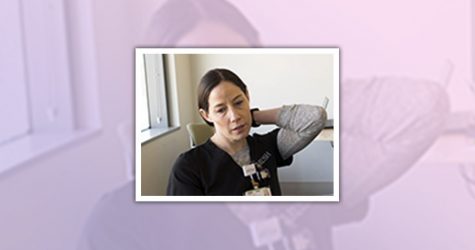The Call
Our Community Affairs and Hospital Development teams work diligently to increase public awareness of and support for donation and encourage our partners to use best patient practices. The actual donation process, however, begins with a crucial phone call made by one of many referral partners to our Donor Resource Center. This timely referral is vital to a successful donation outcome.
When Tovah Roberts started working as a nurse at Chicago’s Rush University Medical Center, she had no previous experience with donation. But three years of hands-on experience have greatly expanded her appreciation for donation and the nurse’s essential role in that process.
The Five-Minute Catalyst
Caring for an emergency patient in critical condition is no easy task. The ER is a frenzy of clinical activity as nurses and physicians focus all of their energies on one goal — saving the patient’s life. “We begin medication and try to figure out which body systems are in the greatest danger,” Tovah explained. “We’re doing everything possible to get the patient stabilized.”
Even with the best combined efforts of doctors and nurses, however, there are always instances when it becomes clear that the patient may not pull through. During these difficult moments, it’s time to pick up the phone to make a donor referral.
“Gift of Hope provides constant training about the donor referral process and the importance of making that call as soon as possible,” Tovah said. “It only takes around five minutes for me to convey the important demographic and medical information needed. The sooner we do that the better the possibility that we will honor a person’s desire to donate or give the family the chance to consider donation.”
Upon referral, it can be determined if a deceased person is in the first-person authorization registry. Then a Gift of Hope Donation Specialist can meet with physicians and others members of the patient care team to discuss the patient’s situation and next steps. If the patient is not a registered donor, together they determine the appropriate time to speak with the patient’s family or other legal decision-maker about asking them to authorize donation.
Committed to Care
Tovah’s role in the donation process also extends beyond the initial referral call. She and her hospital care team members continue to care for her patients and their families, even after death has been declared and donation has been authorized.
“Working with a donor patient is not only a clinical process but also an emotional process because it’s not just the patient you’re caring for. It’s also the patient’s family,” Tovah said. “It’s standing by these families as they process their sorrow and recognize the incredible gift of renewal that their loved ones are going to give to someone else.”
Walking with donor families on this journey often requires “a whole lot of love and mental strength,” said Tovah (left), especially since she must also actively and emotionally transition from normal nursing care to being a source of support and strength for families. “Often the family starts talking about their loved one, and I start to get a glimmer of who this person was,” Tovah said. “Sometimes I have to step away. Sometimes I just need to take a couple minutes and let somebody else take over. And then I go back because this is what we do every day.”
Both challenging and rewarding, Tovah’s role as a nurse in the donation process is one she fully embraces. “It’s an incredibly unique situation to be in because a family trusts you to love their loved one as much as they do,” Tovah said. “They’re trusting you not only clinically but also emotionally, and as a nurse involved in this process I want families to know that they will always be cared for. If you’re at the stage where your loved one is going to be a donor, there’s going to be a lot of tests and running around, but you will always be cared for. And out of your sorrow there can be joy — the joy of knowing that you’re giving another individual, another family, the opportunity for a better life.”
